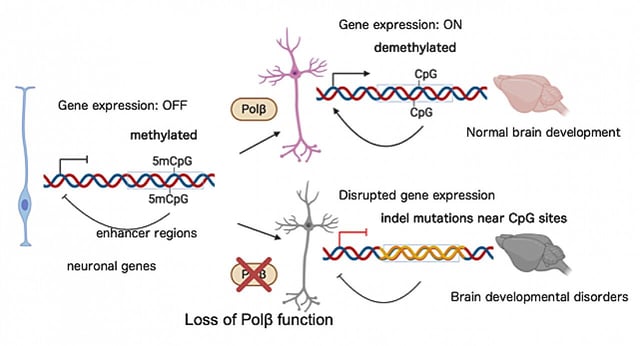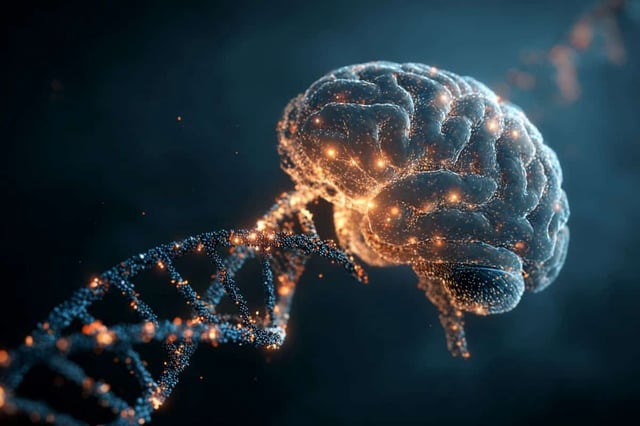Overview
- An Osaka University–led study in PNAS reports that loss of Polβ in neural progenitors increased indels at CpG sites about ninefold and structural variants about fivefold.
- The mutations were enriched in neuronal genes and regulatory regions, causing frameshifts, amino acid insertions or deletions, and gains or losses of CpG sites.
- Results tie the damage to active DNA demethylation, indicating Polβ performs gap filling during base-excision repair to prevent CpG-proximal mutagenesis during gene activation.
- Researchers analyzed immature cortical neurons using mouse somatic cell nuclear transfer–derived embryonic stem cells and whole-genome sequencing.
- The team plans follow-up studies on potential links to specific neurodevelopmental disorders, with broader relevance suggested for cancer and aging research.

